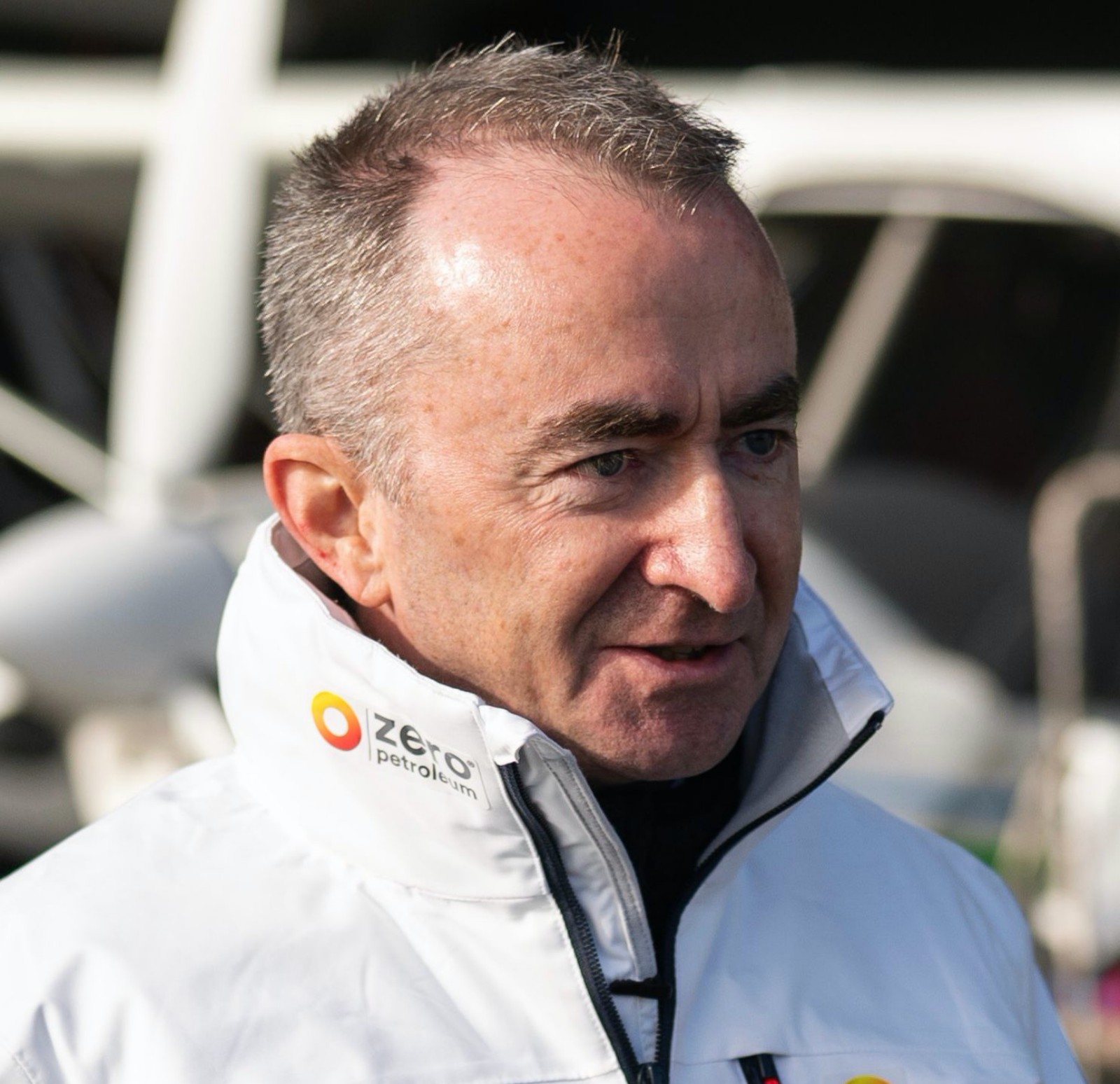Race to Zero

The impact of Zero Petroleum’s hydrogen-based fuel in reducing global emissions could be seismic.

Paddy Lowe’s elevator pitch to potential investors is disarmingly blunt. He promises them the opportunity to be part of what he calls “a complete transformation of world energy”.
Lowe isn’t exaggerating either. He’s the ex-multi-championship-winning Formula One chief technical officer for McLaren, Williams and Mercedes who has now teamed up with Prof Nilay Shah of Imperial College London to launch a company called Zero Petroleum. It’s making sustainable fuel using a proprietary modernising of the Fischer-Tropsch process first developed almost a century ago.
Zero Petroleum’s product isn’t, Lowe stresses, a bio-fuel, which, he argues, typically aren’t as fossil-free as their name suggests and are very hard to scale up. Rather it’s the result of processing hydrogen (extracted from water by electrolysis using renewable electricity), together with carbon (taken from carbon dioxide in the atmosphere by direct air capture), to produce a synthetic fuel that, remarkably, doesn’t need refining to go straight into cars or aircraft with internal-combustion engines.

Indeed, earlier this year, Zero Petroleum won a Guinness World Record by providing the fuel that powered the first-ever fully fossil-fuel-free flight. Even the Royal Air Force has signed up to Zero Petroleum in its bid to become carbon-free by 2040.
“[For me] the idea of making synthetic fuels isn’t just about meeting environmental objectives, it’s about the liberation it provides in terms of still being able to do what you enjoy, as well as doing your duty. It’s enjoyment without guilt,” says Lowe.
“When I was a teenager, I couldn’t wait to get my first motorbike and in those days the world was worried about running out of oil, so I thought if I ever get my licence, I’m going to have to make my own fuel, by distilling ethanol. Jumping to now, it’s a different problem but if I think back through my 40-plus years in motoring I’ve always had this sense of consuming something finite, that here’s this fuel that’s taken millions of years to make and I’m burning it up.”
That won’t be a problem for Zero Petroleum’s synthetic fuel. In theory, since the feedstock is just air and water, supply is infinite, with burning it emitting the same mass of CO2 as went into producing it. The only hurdle is the need for a supply of green electricity.
“But, of course, [Zero Petroleum aside] there’s no escape from that challenge anyway if we want to stop using energy dug up from the ground,” says Lowe, who has just opened Zero Petroleum’s new testing and sampling laboratory in Bicester, UK, and is now financing the opening of its first commercial plants, likely to be in the UK, US and Japan.
The impact of Zero Petroleum’s fuel in reducing global emissions could be seismic too. For one, it allows combustion-engined cars to stay in the road: vintage cars, racing cars but also the millions of what Lowe calls ‘legacy’ cars that have decades of life left in them. That means the fuel will provide an essential stopgap on the road to the electrification of motoring, once the many challenges of infrastructure, battery materials and range have been solved.
But, more importantly, Lowe argues, is that synthetic fuels such as Zero’s (other companies such as Aramco and Porsche/Siemens are working on their own versions) will be essential for powering any model of transport too heavy for battery power to be functional. That means not just aviation or defence, but agriculture and shipping too. The advent of a CO2 emissions limit on cargo ships and airliners, as is already in place for cars, would encourage take-up, Lowe argues.
“The fact is that you can’t run an air force on waste hamburgers either,” he adds with a laugh. “With synthetic fuels such as ours, any type of fuel you need, whether that’s for a Typhoon fighter jet or a combine harvester, is just a variation of the same process, which is important. But there’s clearly a wider demand for synthetic fuels. The bottom line is that there’s room for a lot of players in this new market. The fact that there are more [coming to the fore] is not competition, it’s affirmation that this is the right direction for energy production.”
Lowe adds: “This could be a real game-changer. You know, I thoroughly enjoyed my career in Formula One and we did all joke that one day we’d get a proper job, because it never felt like work. But I feel that this is a proper job now — and the most rewarding too.”
This article originally appeared in Billionaire's Next Gen issue. To subscribe click here.









